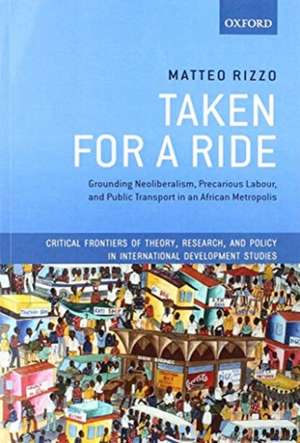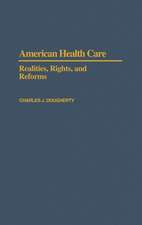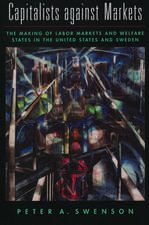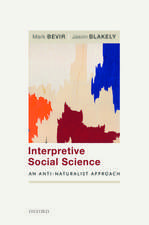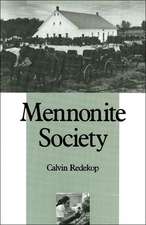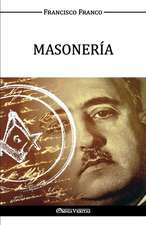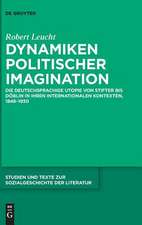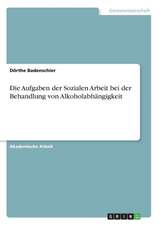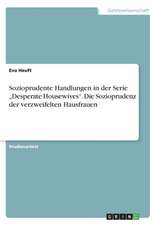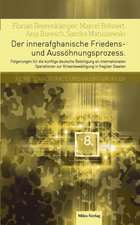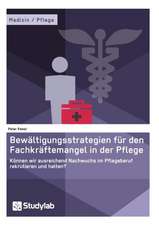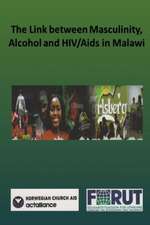Taken For A Ride: Grounding Neoliberalism, Precarious Labour, and Public Transport in an African Metropolis: Critical Frontiers of Theory, Research, and Policy in International Development Studies
Autor Matteo Rizzoen Limba Engleză Paperback – 23 ian 2019
| Toate formatele și edițiile | Preț | Express |
|---|---|---|
| Paperback (1) | 235.22 lei 31-38 zile | |
| OUP OXFORD – 23 ian 2019 | 235.22 lei 31-38 zile | |
| Hardback (1) | 485.96 lei 31-38 zile | |
| OUP OXFORD – 31 mai 2017 | 485.96 lei 31-38 zile |
Din seria Critical Frontiers of Theory, Research, and Policy in International Development Studies
- 18%
 Preț: 356.88 lei
Preț: 356.88 lei - 24%
 Preț: 496.88 lei
Preț: 496.88 lei - 26%
 Preț: 527.40 lei
Preț: 527.40 lei -
 Preț: 273.95 lei
Preț: 273.95 lei - 19%
 Preț: 498.42 lei
Preț: 498.42 lei - 19%
 Preț: 499.39 lei
Preț: 499.39 lei - 17%
 Preț: 215.78 lei
Preț: 215.78 lei - 6%
 Preț: 133.93 lei
Preț: 133.93 lei - 17%
 Preț: 581.95 lei
Preț: 581.95 lei - 28%
 Preț: 473.21 lei
Preț: 473.21 lei - 26%
 Preț: 543.40 lei
Preț: 543.40 lei - 30%
 Preț: 541.93 lei
Preț: 541.93 lei - 24%
 Preț: 468.33 lei
Preț: 468.33 lei - 24%
 Preț: 473.69 lei
Preț: 473.69 lei - 17%
 Preț: 495.01 lei
Preț: 495.01 lei - 15%
 Preț: 223.97 lei
Preț: 223.97 lei
Preț: 235.22 lei
Preț vechi: 261.46 lei
-10% Nou
Puncte Express: 353
Preț estimativ în valută:
45.01€ • 46.99$ • 37.25£
45.01€ • 46.99$ • 37.25£
Carte tipărită la comandă
Livrare economică 24-31 martie
Preluare comenzi: 021 569.72.76
Specificații
ISBN-13: 9780198839057
ISBN-10: 0198839057
Pagini: 240
Dimensiuni: 164 x 233 x 13 mm
Greutate: 0.36 kg
Editura: OUP OXFORD
Colecția OUP Oxford
Seria Critical Frontiers of Theory, Research, and Policy in International Development Studies
Locul publicării:Oxford, United Kingdom
ISBN-10: 0198839057
Pagini: 240
Dimensiuni: 164 x 233 x 13 mm
Greutate: 0.36 kg
Editura: OUP OXFORD
Colecția OUP Oxford
Seria Critical Frontiers of Theory, Research, and Policy in International Development Studies
Locul publicării:Oxford, United Kingdom
Recenzii
pushing forward much-needed critical debate by helping us rethink and reimagine alternative public transport futures for African cities, futures that should start with the lived realities and aspirations of the majority of citizens, including the poor and middle classes, who currently - for better or worse - rely fundamentally on these deeply rooted and complex minibus systems.
One of the more impressive aspects of this book is that it manages to situate the opening up of transport in Dar es Salaam in two ways: 1) as part of the broader global ascent of neoliberalism, and 2) as part of the more specific political economy of Tanzania.
...the book is definitely a stimulating account of informal public transport provisions in a Southern city, helping its readers to unpack conventional understandings of both public transport and informality.
To appreciate Rizzo's Taken for a Ride one must first understand what he has done methodologically. Rizzo embeds public transport in urban Tanzania in a series of relationships with other elements of Tanzanian politics, economics and society. We find that public transport has to be understood in its connection with Tanzania's socialist policies of the 1960s, but also to the IMFs structural adjustment policies of the 1980s. We get the views of politicians as well as of drivers and the passengers. Each element is animated and rendered a part of a larger whole so that by the end of it all we get the picture of a living history of urban Tanzania, with its highs, lows, and many contradictions. The research is astonishing in its range, the writing vivid and clear, and the end result is an insightful and superb contribution to African and Global South urban studies.
Taken for a Ride is an exciting and innovative contribution to the emerging field of African labour studies. Through substantial field work and a sophisticated critique of market fundamentalism and post colonial theory, Matteo Rizzo brings vividly to life the struggles of public transport workers in the sprawling African coastal city of Dar es Salaam, Tanzania. Carefully avoiding both a romantic optimism and a bland structural pessimism, the author shows how a shared notion of exploitation was constructed amongst the divided transport workers and a new trade union controlled by informal workers was born.
In this theoretically clear and absorbing monograph, Matteo Rizzo makes sense of the often hidden, neglected but still critical relationship of transport workers to employers on the buses of the burgeoning city of Dar es Salaam, Tanzania, over forty years. Rizzo's skilful fieldwork and his very intelligentand hard-hitting - critique of market fundamentalist and postcolonial approaches to the African city and to the informal economy are a breath of fresh air. This book will be important to scholars and students in urban studies, political economy, development, and African studies.
This book has a unique focus on labour experiences and relations in urban transport in Tanzania. Rizzo makes visible and gives a voice to the tens of thousands of informal workers who keep a city moving every day. Workers' stories bring to life the hardships, but also the incredible resilience and determination to secure a better livelihood through union organization and struggle. Rizzo provides a deep and detailed account of the impacts of neoliberal transport policy, including BRT, on labour. For trade unionists, this book provides the deep analysis and ideas needed to strengthen strategic organization, campaigning, and policy development.
This is an extraordinarily accomplished work of scholarship bringing together painstaking fieldwork and a contextual understanding of workers' struggles in the Tanzanian public transport industry. It does so by admirably locating the case study in broader debates around neoliberalism and the urban experience in the South, economic informality, and the continuing relevance and potential of labour movements for winning progressive outcomes for workers themselves and for economic and social development more broadly.
"In Matteo Rizzo's remarkable book the reader takes a seat for a unique 'journey through the history, economic organisation, and politics of public transport' in the vibrant city of Dar es Salaam..It is highly recommended to anyone seeking a deeper understanding of economic relations, labour, politics, and power in the local transport sector (and beyond)." -- Daniel Ehebrecht and Alina Oswald,The Journal of Development Studies
Matteo Rizzo's Taken for a Ride: Grounding Neoliberalism, Precarious Labour, and Public Transport in an African Metropolis is a book on urban transport in Dar es Salaam, Tanzania, and it makes two important scholarly contributions. The first is an intervention into debates about neoliberalism,...The second, more nuanced contribution of the book is the analysis of the past and present of transport work in the urban informal economy. The story Rizzo tells is a powerful and convincing one, in large part due to research methods that are both longitudinal (he carried out research over an extended period between 1998 and 2014) and up close.
One of the more impressive aspects of this book is that it manages to situate the opening up of transport in Dar es Salaam in two ways: 1) as part of the broader global ascent of neoliberalism, and 2) as part of the more specific political economy of Tanzania.
...the book is definitely a stimulating account of informal public transport provisions in a Southern city, helping its readers to unpack conventional understandings of both public transport and informality.
To appreciate Rizzo's Taken for a Ride one must first understand what he has done methodologically. Rizzo embeds public transport in urban Tanzania in a series of relationships with other elements of Tanzanian politics, economics and society. We find that public transport has to be understood in its connection with Tanzania's socialist policies of the 1960s, but also to the IMFs structural adjustment policies of the 1980s. We get the views of politicians as well as of drivers and the passengers. Each element is animated and rendered a part of a larger whole so that by the end of it all we get the picture of a living history of urban Tanzania, with its highs, lows, and many contradictions. The research is astonishing in its range, the writing vivid and clear, and the end result is an insightful and superb contribution to African and Global South urban studies.
Taken for a Ride is an exciting and innovative contribution to the emerging field of African labour studies. Through substantial field work and a sophisticated critique of market fundamentalism and post colonial theory, Matteo Rizzo brings vividly to life the struggles of public transport workers in the sprawling African coastal city of Dar es Salaam, Tanzania. Carefully avoiding both a romantic optimism and a bland structural pessimism, the author shows how a shared notion of exploitation was constructed amongst the divided transport workers and a new trade union controlled by informal workers was born.
In this theoretically clear and absorbing monograph, Matteo Rizzo makes sense of the often hidden, neglected but still critical relationship of transport workers to employers on the buses of the burgeoning city of Dar es Salaam, Tanzania, over forty years. Rizzo's skilful fieldwork and his very intelligentand hard-hitting - critique of market fundamentalist and postcolonial approaches to the African city and to the informal economy are a breath of fresh air. This book will be important to scholars and students in urban studies, political economy, development, and African studies.
This book has a unique focus on labour experiences and relations in urban transport in Tanzania. Rizzo makes visible and gives a voice to the tens of thousands of informal workers who keep a city moving every day. Workers' stories bring to life the hardships, but also the incredible resilience and determination to secure a better livelihood through union organization and struggle. Rizzo provides a deep and detailed account of the impacts of neoliberal transport policy, including BRT, on labour. For trade unionists, this book provides the deep analysis and ideas needed to strengthen strategic organization, campaigning, and policy development.
This is an extraordinarily accomplished work of scholarship bringing together painstaking fieldwork and a contextual understanding of workers' struggles in the Tanzanian public transport industry. It does so by admirably locating the case study in broader debates around neoliberalism and the urban experience in the South, economic informality, and the continuing relevance and potential of labour movements for winning progressive outcomes for workers themselves and for economic and social development more broadly.
"In Matteo Rizzo's remarkable book the reader takes a seat for a unique 'journey through the history, economic organisation, and politics of public transport' in the vibrant city of Dar es Salaam..It is highly recommended to anyone seeking a deeper understanding of economic relations, labour, politics, and power in the local transport sector (and beyond)." -- Daniel Ehebrecht and Alina Oswald,The Journal of Development Studies
Matteo Rizzo's Taken for a Ride: Grounding Neoliberalism, Precarious Labour, and Public Transport in an African Metropolis is a book on urban transport in Dar es Salaam, Tanzania, and it makes two important scholarly contributions. The first is an intervention into debates about neoliberalism,...The second, more nuanced contribution of the book is the analysis of the past and present of transport work in the urban informal economy. The story Rizzo tells is a powerful and convincing one, in large part due to research methods that are both longitudinal (he carried out research over an extended period between 1998 and 2014) and up close.
Notă biografică
Matteo Rizzo is a political economist who lives and works in London, where he is a senior lecturer across the Departments of Economics and Development Studies at SOAS, University of London, UK. He previously worked at the African Studies Centre, University of Oxford and at the Centre for African Studies, University of Cambridge. His work has been published by leading African studies and development studies journals, including the Journal of Development Studies, Development and Change, the Journal of Agrarian Change, African Affairs, the Journal of Modern African Studies and the Review of African Political Economy, of which he is also a member of the Editorial Working Group.
